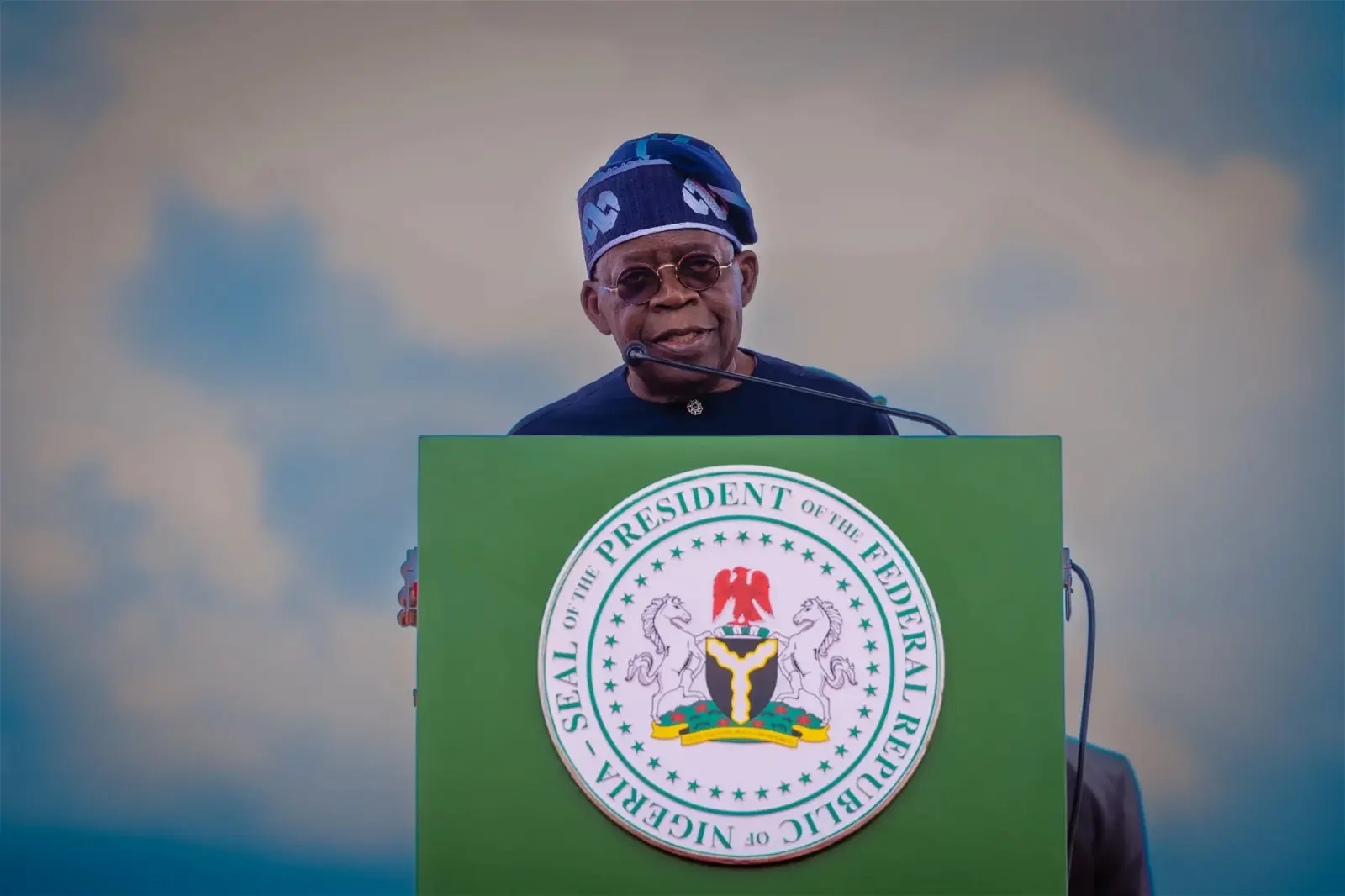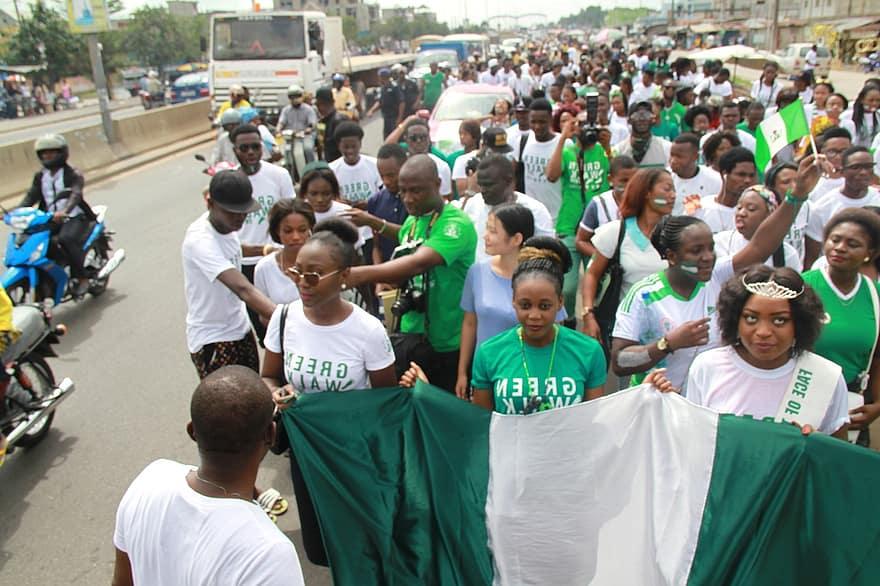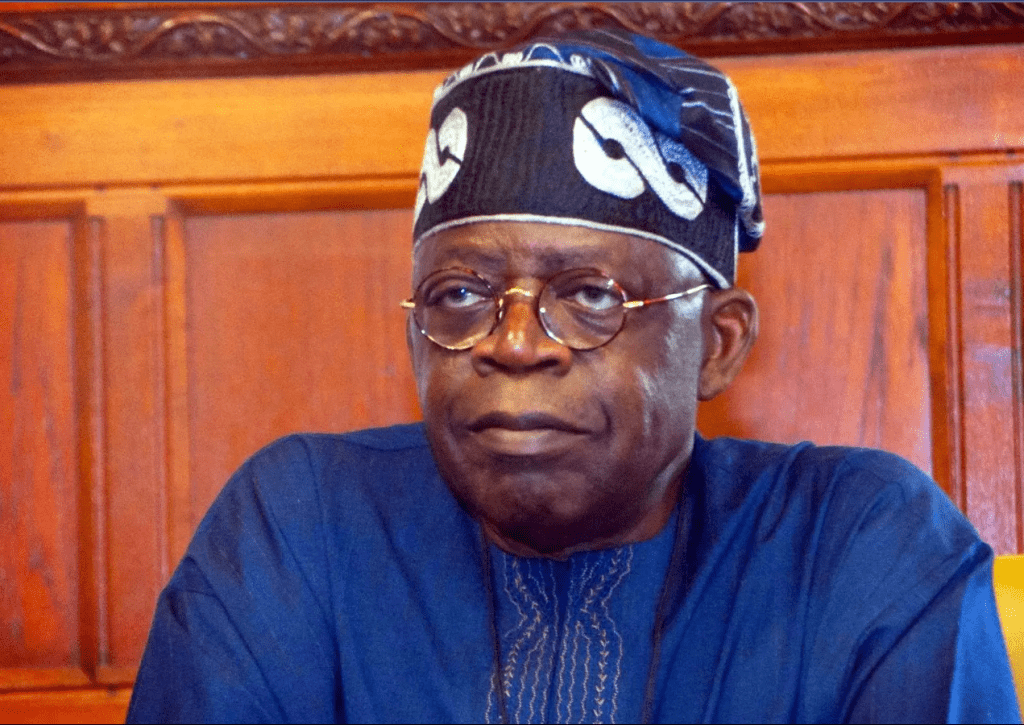Nigeria’s Democracy Day: Is Nigeria still In A Democracy?

How do we best identify danger? It is when we are faced with everything unpleasant going on in Nigeria presently, and still call it a ‘Democracy’. That is how we know that we are in danger. On Nigeria’s Democracy Day, we should ask ourselves these important questions.
Only a few years ago, there was a reported case of militants killing at least 25 people. These individuals were reported to have razed houses, shops, and a palace in a town in Nigeria’s southwest. However, no clear effort has been made to tackle this insurgency because the government for some reason does not deem the security of its citizens as a priority as opposed to other matters like changing the national anthem.
To aggravate matters, the growing insurgency in Nigeria has reached its peak. In the North, thousands of people are abducted, killed, and kidnapped daily. The most recent one is the growing case of human trafficking in the south-east and some part of the west. However, it is amidst all this that we adjudge to practice the term “Democracy.’
When a child is born, the commemoration of the child’s birth is done every year in felicitations and loud songs, however, when the case is reverted, and such felicitations are held amidst political turmoil, economic decline, mass insecurity, and unhealthy divisions, such celebrations do not remind anyone of anything good (Democracy) but rather, it only reminds of a slathering of political good that would have been if things had been done better by all, both at the highest positions of power and even at the rung of the ladder.
When is Nigeria’s Democracy Day?
June 12 is a day declared by the Nigerian government to mark and commemorate the posterity of Democracy and its unfailing liberation of the people and country from the unbearable clutches of colonialization. June 12 originally was marked Democratic day because it is significantly a day of great value in the history of Nigeria. it is the date of Nigeria’s acclaimed freest and fairest election, held in 1993.
A day that reminds Nigerians of the labor of their heroes’ past in contribution to the development of the country. However, while this day which is supposed to reflect the beauty of Democracy and the people’s appreciation for independence should have been revered and anticipated in good faith, we see that the reverse is the case as only recently, past celebrations have been marked by general apathy. It is indeed no longer an indication that the air in Nigeria is restricted and filled with political strife and tension as the unity of the country strains between a rock and a hard place.
Only recently, the climate of political tension has resurfaced making one pose the irrefutable question of whether Democracy in Nigeria is not truly in peril and near utmost danger? Nigeria, just recently just went on a nationwide strike, about a week ago. Power supply, aviation services and a few more other were shut down due to minimum wage issues within the country.

Amongst the many reasons for this strike is Nigerians intention to register their disgust and dismay over the consistent and irregular increase in prices of commodities and literally everything else. The government’s continued apathy towards the incessant killings, insurgencies, scarcity and poverty ravaging the country is usually the news headlines daily. From banditry, human rights violation, insecurity, the Twitter ban, and most recently, rising inflation, there’s a lot of other frightening circumstances that Nigerians have had to contend with for a long time in a seemingly ‘democratic’ system. This brings the question, is Nigeria still a democratic country?
Is Nigeria Still A Democratic Country?
The ultimate enemy of Democracy is a dictatorship. A dictatorship is a form of government characterized by a single leader or group of leaders and little or no tolerance for political pluralism or independent media – Wikipedia.
Since independence, Nigeria has had a weak hold on her Democracy. On the 15th of January 1966, the first Military dictatorship began and Nigerians began to suffer like never before. The Military which had good intentions of ridding the Country of corruption became even more entrenched in it than the colonial government officials they despised.
The entire military dictatorship was aptly described in the writing of the late Ken Saro Wiwa, an activist who was murdered for speaking up against the military government.
“One military dictator, Ibrahim Badamasi Babangida, defined the true Nigerian this way: Every Nigerian had a price and all you had to do was to find the right price; if however, you found a Nigerian who had no price and could therefore not be bought, he or she was not a true Nigerian and had to be carefully watched. Another military dictator, Sani Abacha, had a far more sinister take on this matter: Every Nigerian had a price; any woman or man that had no price and could not be bought was not a Nigerian and had to be jailed or killed or both. I know of no literary testament from our unhappy country that goes more to the heart of this particular darkness than this volume containing the last writings of the late Ken Saro-Wiwa.”
If history is not enough to warn us, then perhaps our present can. In the past weeks, Nigerians have asked themselves this question with greater trepidation and urgency. Are we in a Democracy? The recent banning of the social media app- Twitter; The daily killings of innocent citizens and the fast dwindling economy buttress the need to ask this question.
The Attorney-General of the Federation, Lateef Fagbemi, said this when he declared the 26th National Stakeholders Consultative Forum on Human Trafficking opened in Abuja on Monday.
“The porous nature of our borders and the sophisticated networks of these criminals further compounds the challenge of combating the menace. Nigeria has demonstrated its commitment not only in the high number of convictions but also with successful rescue and rehabilitation of thousands of victims alongside strategic preventive measures.”
~Fagbemi
“President Bola Tinubu-led administration recognises that addressing poverty and underdevelopment is critical in preventing human trafficking. Investing in people, especially young people and the disadvantaged, reduces the desperation that drives individuals into exploitation abroad,
Through the silence of the President and the Implementation of draconian policies, we can surely say that the Nigerian Democracy is in grave danger of falling apart.

How is Democracy Day in Nigeria
June 12 is Democracy day in Nigeria in commemoration of the democratic election of MKO Abiola on June 12, 1993, in Nigeria’s freest and fairest elections in history. However, the Labour Congress in Nigeria were planning on going on a nationwide strike, irregardless of the democracy day celebration. Thankfull, it was cancelled yesterday, June 10th. According to the Nigeria Labour Congress, NLC, President, Joe Ajaero,
“The tripartite committee submitted two figures to the President. Government and employers proposed N62,000, while labour proposed N250,000. We are waiting for the decision of the President. Our National Executive Council, NEC, will deliberate on the new figure when it is out.”
“We cannot declare strike now because the figures are with the President. We will wait for the President’s decision. During the tenure of the immediate past President, the figure proposed to him was N27,000 by the tripartite committee. But he increased it to N30,000. We are hopeful that this President will do the right thing. The President had noted that the difference between N62,000 and N250,000 is a wide gulf.”
Joe Ajaero
From what he said, it can be deduced that the nationwide strike is still on hold. It can begin at anytime, depending on President Bola Ahmed Tinubu’s answer. Things are not looking up as up till now, the federal government has remained silent on the issue and is yet to give a definite answer.


The organised Labour Congress had declared a nationwide strike following the tripartite committee’s failure to agree on a minimum wage by the deadline of 31 May. TUC President, Festus Osifo, announced the strike during a joint press conference with the NLC.
Amongst the demands laid out were:
- A decrease in the hike in electricity tariff by the Federal Government.,
- The N30,000 subsisting minimum wage.
- The rising price inflation, forex crisis, economic hardship and high cost of living.
- Settlement of pension arrears.
- The establishment of compressed natural gas conversion centers in all senatorial districts.
As with every case of national concerns, some individuals have taken to remaining quiet and indifferent on the matter especially after the bloody event of the #End SARS Protest and #Lekki Tollgate massacre that had led to the death of several young Nigerians who took to the streets to protest against bad governance in 2020.
The Role of Civil Society in Nigeria’s Democracy Today

In these difficult times, civil society plays a crucial role in defending democratic principles and holding the government accountable. The #EndSARS protests in 2020 showed the power of collective action. Despite violent suppression, the protests called for real change. However, the government allegedly hired thugs to disrupt these protests, showing how far those in power will go to maintain control.
To protect Nigeria’s democracy, citizens, civil society groups, and international partners must continue to push for transparent governance, respect for human rights, and economic reforms that benefit the people. Building stronger democratic institutions, ensuring accountability, and promoting open dialogue are key steps toward rebuilding trust and fostering a more resilient democracy.
Final Thoughts
Nigeria is at a crossroad. The country’s democracy faces serious challenges from insecurity, economic hardship, and government inaction. As Nigerians mark Democracy Day, it is a reminder of the country’s aspirations and struggles.
The future of Nigeria’s democracy depends on the people’s efforts to demand and bring about meaningful change, and of course the Federal Government of the Republic of Nigeria to be sympathetic enough to answer all their pleas. Only by doing so can they ensure freedom, peace, justice, and prosperity for all.
Happy Democracy Day Nigeria!!!
All images are sourced from twitter.com & vanguard
She's a beauty and an exquisite lady who enjoys the high life in writing and poetry. Her writing style and prowess is innovative and focuses on the feminine perspective, bringing nothing but wholesome gratification to the African, Afrocentric and Afro-American women at large
The one who spells Afrolady from the larynx of her pen. She’s a high spirited, cultured and ingenuous African child, whose writing drops an unimaginative creative splash on history and carves the indignation and memories of Black women.

